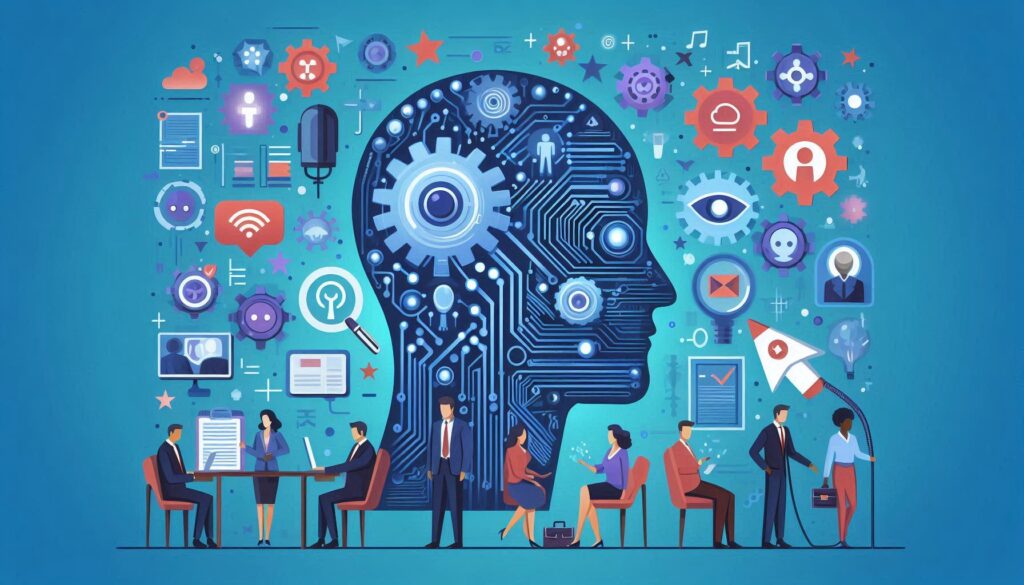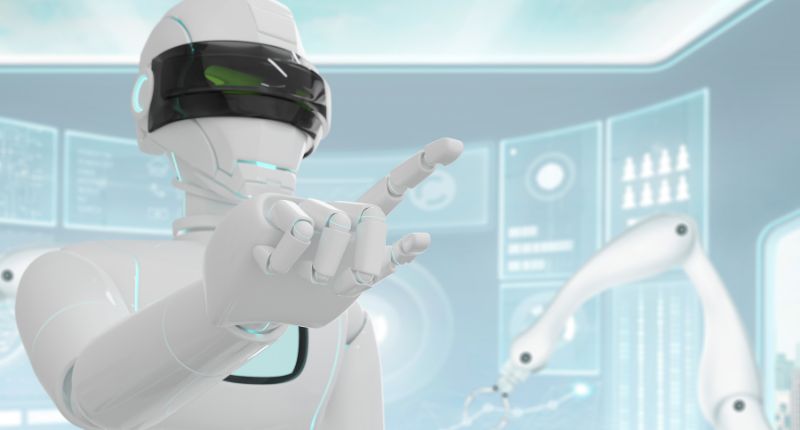In today’s fast-paced job market, businesses are turning to AI in recruitment to streamline hiring processes and improve efficiency. AI-powered tools are revolutionizing talent acquisition by automating repetitive tasks, enhancing candidate screening, and reducing hiring bias. However, as with any technology, AI in recruitment comes with its own set of advantages and disadvantages.
This article explores the pros and cons of AI in recruitment, providing valuable insights for HR professionals and business owners looking to adopt AI-driven hiring solutions.
The Pros of Using AI in Recruitment
1. Increased Efficiency and Speed
One of the biggest advantages of AI in recruitment is its ability to automate repetitive tasks, such as resume screening, interview scheduling, and applicant tracking. AI-driven software can analyze thousands of resumes in seconds, significantly reducing the time-to-hire and allowing recruiters to focus on strategic tasks.
2. Improved Candidate Matching
AI algorithms use natural language processing (NLP) and machine learning to match candidates with job requirements based on their skills, experience, and qualifications. This leads to more accurate hiring decisions and a better fit between employers and potential employees.
3. Reduction of Hiring Bias
Traditional hiring processes are often affected by unconscious bias, leading to discrimination based on gender, ethnicity, or background. AI-powered recruitment tools can be programmed to focus solely on candidate qualifications and experience, ensuring a more objective hiring process.
4. Enhanced Candidate Experience
AI-powered chatbots and virtual assistants provide instant responses to candidate inquiries, schedule interviews, and offer real-time feedback. This enhances the candidate experience, making the recruitment process more engaging and efficient.
5. Cost Savings for Companies
By automating administrative tasks and streamlining hiring, companies can reduce HR costs associated with recruitment. AI minimizes the need for large HR teams and helps businesses allocate resources more effectively.
6. Data-Driven Decision Making
AI tools collect and analyze large amounts of hiring data, allowing recruiters to make informed decisions based on real-time analytics. This leads to better hiring strategies and improved workforce planning.
The Cons of Using AI in Recruitment
1. Lack of Human Touch
While AI improves efficiency, it cannot replace human intuition and emotional intelligence. Candidates often prefer personal interaction with recruiters, and an over-reliance on AI may lead to a cold and impersonal hiring experience.
2. Risk of Algorithmic Bias
Although AI aims to eliminate bias, it can inadvertently introduce algorithmic bias if trained on historical data that reflects existing discrimination. This could lead to unfair hiring decisions and legal challenges.
3. Limited Understanding of Soft Skills
AI can assess technical skills effectively, but it struggles with evaluating soft skills such as leadership, creativity, and emotional intelligence. These qualities are often critical in hiring decisions and require human judgment.
4. High Implementation Costs
Integrating AI-powered recruitment tools requires a significant financial investment. Small and medium-sized businesses may find it challenging to afford AI-driven hiring solutions due to their high upfront costs.
5. Privacy and Data Security Concerns
AI recruitment tools collect and store vast amounts of personal data, raising concerns about privacy and cybersecurity. Employers must ensure compliance with data protection regulations such as GDPR to safeguard candidate information.
6. Dependence on AI May Reduce Recruiter Skills
Over-reliance on AI may lead to recruiters losing critical hiring skills, such as interpersonal communication, negotiation, and intuition. Balancing AI automation with human oversight is essential to maintain a high-quality recruitment process.
How to Use AI in Recruitment Effectively
1. Combine AI with Human Oversight
While AI can enhance efficiency, recruiters should retain control over decision-making. Human oversight is essential to ensure AI-driven hiring remains fair, ethical, and effective.
2. Use AI to Complement, Not Replace, Recruiters
AI should be used as a support tool rather than a replacement for human recruiters. Organizations should leverage AI to automate administrative tasks while allowing recruiters to focus on relationship-building and strategic hiring decisions.
3. Continuously Monitor AI Performance
Recruiters should regularly evaluate AI algorithms to detect biases and ensure the system makes fair hiring decisions. AI models must be updated with diverse and unbiased data to minimize discrimination.
4. Prioritize Candidate Privacy and Compliance
Companies must adopt strict data protection policies to ensure AI recruitment tools comply with legal and ethical standards. Transparency in AI-driven hiring decisions is crucial for candidate trust and compliance with employment laws.
Conclusion
AI in recruitment offers significant benefits, including improved efficiency, reduced bias, enhanced candidate matching, and cost savings. However, it also presents challenges such as lack of human touch, potential biases, high costs, and data security concerns.
To maximize the advantages while minimizing the risks, businesses should adopt a balanced approach, combining AI automation with human judgment. By using AI responsibly, companies can create a more efficient, fair, and effective recruitment process that benefits both employers and job seekers.


